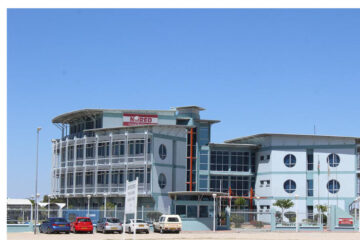The Shoprite strike is a sign of a healthy democracy. Workers have the right to organize and insist on their priorities. When a legal dispute is declared there are laws in play that must be respected by all sides. The concern is the initial ruling of Judge Shafima Ueitele. He interdicted Shoprite from redeploying existing employees to do the work of an employee who was out on strike. Such a sweeping decision is rightfully under appeal. Its ramifications for all businesses in Namibia are severe.
Firing workers legally on strike and then hiring outside ‘scab’ labour is illegal. The unclear part is that the court order seemed to reach into areas of internal administration of existing employees. This sets a precedent. One can argue that the court is now micromanaging the HR decisions of private companies.
For a judge to tell an employer, who should be doing what job inside the business, goes a step too far in the minds of many.
We are not lawyers. But we must ask if every business must now prepare for a court to tell them how their employees should be utilized within their company?
Namibian courts are slow. Is it reasonable to ask a business to lose money, drop services, or heave extra work onto other employees while a long term labour dispute is managed?
Judges must never make new law. That is for legislators. Judges must use the law on the books, interpret it within strict parameters and decide solely on that basis.
In a strike, workers should know that employers will push back on demands that affect profit margins. This is normal in a capitalist model that operates in Namibia.
Shoprite is in business to make money. Employees are measured based on their value to the company and their outputs. Those in semi-skilled positions from a potential job pool overflowing with supply must know they are easily replaceable. This is cold truth, but that is what a capitalist system entails.
Whatever concessions are made by ShopRite now, the employees will be back on strike for even more in two years. This truth makes employers loathe to give a single inch on even the smallest demand. Nevertheless, the workers must shout, protest, strike and go to court to make businesses bend when the law is on their side. But, they must lobby the government to make laws that are on their side with no more loopholes.
Take note that grocery stores are not hurting financially due to the pandemic per se. Unlike the travel/tourism and constructions industries, food stores were deemed an essential service. They remained open throughout the State of Emergency. Their aisles and tills were full all through the COVID-19 State of Emergency.
Granted, there were crises over shipments and resupply when borders were closed or restricted. But, in general, the food stores did not have an economic crisis in 2020.
However, even before COVID, Shoprite was experiencing worker complaints about the issues around low pay.
Consultants, temporary or seasonal workers are cheaper to hire in terms of cost-to-company. They get no social security co-payments, no benefits, no PAYE, no holiday pay, no severance, and low resistance caused by no job security. Many employers take this sidestep to avoid the cumbersome and costly bind of hiring permanent employees in Namibia. Nafau should pressure for changes to close loopholes that hurt their members.
Labour laws in Namibia may have disincentivized companies from hiring anyone as permanent staff. This should be examined from the employers’ point of view.
The Ministry of Labour needs to come to the public and explain why they have not closed the loophole in the law that allows consultants and temps? Why blame ShopRite alone?
Many South African-headquartered companies operate in Namibia (like Shoprite). They are known to pay their lower-level workers poorly. The business model of these South African companies is calculated to the last Rand. Managers locally who do not meet these tallies can be fired. There have been complaints about Chinese and other foreign employers who do not pay a living wage salary. Disputes like Shoprite’s are not new.
That said, Shoprite workers are adults and must be accountable for their informed choices. Everyone on that picket line accepted their jobs with full knowledge of the system, the salary level and the no-benefits policies. Those in desperate need of any job accepted the Shoprite employment conditions. Can they come after the fact and say, we want something other than what we were promised? That is a difficult argument to sustain.
The justifications for the ongoing strike would be different if the staff were unpaid, underpaid based on what was promised or had unsafe working conditions. Newspaper reports have not listed these areas as reasons for the strike.
We must await the result of the legal action pending. The far-ranging impacts on all private companies operating in Namibia cannot be underestimated.



